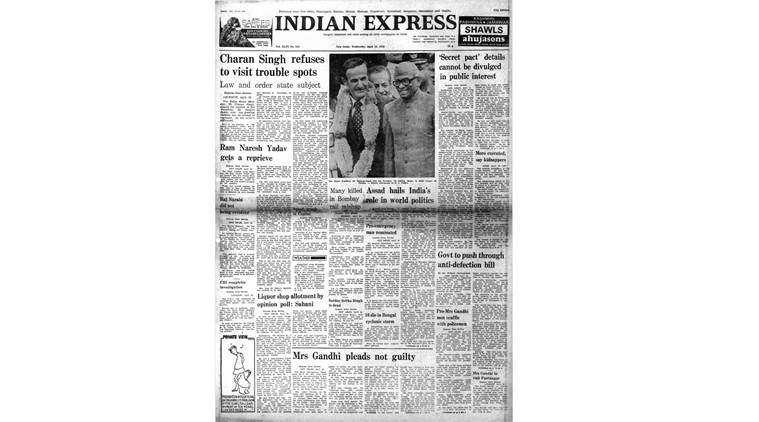 Amidst shouts and vociferous protests from Congress I and Congress members, Vajpayee took the plea of public interest at the end of a lively battle of points of order on whether he could be forced to place on the table of the House documents relied on by him.
Amidst shouts and vociferous protests from Congress I and Congress members, Vajpayee took the plea of public interest at the end of a lively battle of points of order on whether he could be forced to place on the table of the House documents relied on by him.
Simla Talks
Reaffirming that the then Prime Minister, Indira Gandhi, had reached “some sort of secret understanding” with Z A Bhutto in a confidential conversation during the Simla talks in 1972, the External Affairs Minister Atal Bihari Vajpayee told the Lok Sabha that it would not be in public interest to disclose its details. Amidst shouts and vociferous protests from Congress I and Congress members, Vajpayee took the plea of public interest at the end of a lively battle of points of order on whether he could be forced to place on the table of the House documents relied on by him. Speaker Hegde reserved his ruling saying he would carefully examine the matter including legal aspects. The points were raised among others by Vayalar Ravi (Congress) and Vasant Sathe (Congress-I), who demanded that the House be taken into confidence.
RS Nomination
A report pointed out that Malcolm Adiseshiah, nominated to the Rajya Sabha, is a person who had praised the Emergency. In a interview to The Indian Expresson December 15, 1976, he said: “The Emergency proclaimed last year has infused an element of discipline in the economic life of the country and we have the lowest loss of mandays in the last five years.” Talking to a British author, David Selbourne, in Madras in Decemeber 1975, Adiseshiah said that he was “unaware of any constraint upon free discussion and debate in India”. The report claimed that observations were brought to the notice of the government, but it still chose to nominate the renowned economist to Parliament.
Indira Pleads
The Chief Metropolitan Magistrate fixed May 9 for the examination of prosecution witnesses as Indira Gandhi, former prime minister, pleaded not guilty of offences under sections 178 and 179 of the IPC filed against her by the Shah Commission.